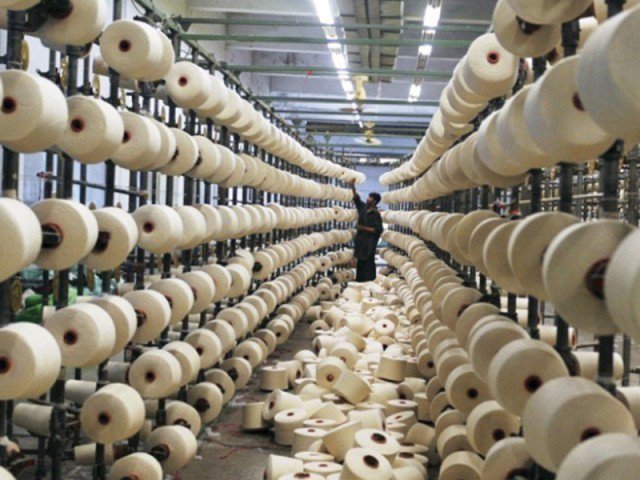KARACHI: The country has entered in an era of de-industrialisation where industries are closing down due to cotton shortage and about 140 textile spinning mills have already closed their operations while 75 to 80 mills are on the verge of closure, it was learnt.
“One million workers have already lost their jobs and if another 75 to 80 mills closed down, it will further add to the unemployment figure by another 0.5 million labour force,” said All Pakistan Textile Mills Association (APTMA) Senior Vice Chairman Zahid Mazhar here on Tuesday.
Due to the failure to meet the demand for the third consecutive year and the increase in prices of cotton has increased the cost of doing business for the spinning sector of the country. They are now compelled to meet about 30 per cent of their consumption requirement through imports.
He said the spinning sector is the backbone of the textile value chain and has been on the frontline of the high costs of doing business in the last few years.
Today, the spinning industry is incurring heavy losses by selling yarn below its cost due to poor demand from the domestic consumers. The production of yarn is substantially more than the local consumption, therefore, their exports must be encouraged at all costs, otherwise, it will result in a permanent massive closure of mills and resultant unemployment, he claimed.
“Hue and cry regarding the increase in prices of yarn in the domestic market do not hold any ground,” he said.
The cosmetic solutions like imposition of 4 per cent custom duty and 5 per cent sales tax on the import of cotton has further increased the cost of doing business which is already high as compared to the competitors in the region, which is the main reason behind the recent upward movement of price of yarn in the country.
In addition to the above, the government has also imposed non-tariff measures like restriction on import of cotton from India, which has also hurt the spinning industry of Pakistan.
He further said that the above measures taken by the government are facilitating the textile industry of India which can be witnessed by the surge in import of yarn from India. Due to the closure of these mills Pakistan’s textile exports are also suffering a loss of more than $ 4 billion per annum, he added.
Responding to a claim by Pakistan Apparel Forum regarding increase in prices of cotton yarn and the decline in exports of value-added textile products, Zahid Mazhar said that in the first quarter of the current Financial Year exports of knitwear has increased by 15.4 per cent in quantity terms and 9.3 per cent in value terms, bed wear by 1.8 per cent and 7.2 per cent in quantity and value terms respectively as compared to the first quarter of last year. Similarly, readymade exports witnessed 18.9 per cent in quantity terms and 16 per cent in value terms.
He pointed out that the production of yarn is substantially more than the local consumption, therefore, their exports must be encouraged at all times, otherwise, it will result in the permanent massive closure of mills and increased unemployment. He in support of his argument of supporting the export of yarn said that as per data of Pakistan Bureau of Statistics, total production of Yarn in the year 2016-17 was 3,428,730 tonne whereas cotton yarn exported in the same period was 455,345 tonne i.e. only 13.28 per cent of the total production of the year.
Similarly, in the year 2015-16 total production of cotton yarn was 3,405,559 tonne whereas only 12.44 per cent or 423,624 tonnes were exported. Thus about 87 per cent of cotton yarn produced in the country is already available for the local market whereas the domestic downstream industry consumes only about 70 per cent of the total production of yarn.
The domestic consumers of yarn should not expect the spinning mills to subsidise their costs by providing yarn below cost, rather they should explore other avenues to increase their margins.
The cotton crop of the country is far behind the consumption requirements for the third consecutive year resulting in imports of quality cotton from India and other countries to meet its consumption requirement of over 15 million bales.
He demanded the government to immediately withdraw 4 per cent customs duty and 5 per cent sales tax on import of cotton and remove restrictions on the import of cotton from India till our production matches at least our consumption requirement since Indian cotton is being exported to all other importing countries without any restrictions.
He further demanded the government to make serious efforts in increasing the size of the annual cotton crop to 20 million bales following the example of India. This will boost the income of the farmers and on the other hand reduce the input costs of all the sectors of the textile economy.




